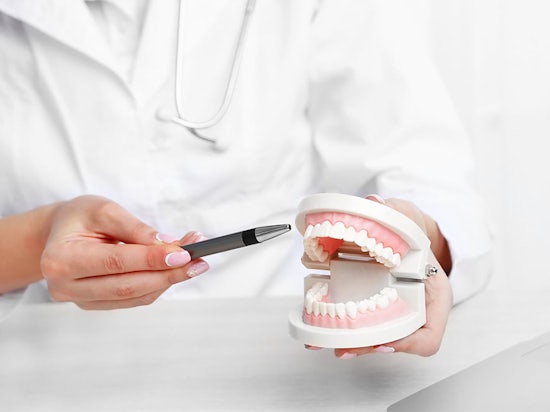Dental Implants For Older Adults – What Are The Benefits?
SPONSORED STORY – Oral health and decisions surrounding dental can be an unexpected part of ageing for many older Australians, with statistics showing that people aged over 65 are significantly more likely to be living with none of their natural teeth.

There can be many benefits to dental implants as you age (Source: Malo Clinic)
The rate of edentulism – loss of all natural teeth – varies with age, but according to 2015 Australian Government survey data, the issue affects 19.1 percent of Australians over the age of 65, compared to just 3.2 percent of those aged 45-64.
For the many older Australians affected by tooth loss, a spokesperson for experts in dental work, the Malo Clinic, says it leaves them with the challenge of deciding to leave the gaps, or fill them with a part denture, a bridge or even an implant.
“Aside from being visibly unappealing, gaps can create an increased risk of infection, bone and tissue loss and may cause instability for the surrounding teeth, potentially leading to further extractions. It’s a slippery slope when you begin losing teeth,” the spokesperson says.
“Dental bridges are useful prosthetic devices but they are reliant on the support of surrounding teeth. They can last up to a decade and maybe longer but will require replacement.
“Often the ideal, longer-lasting solution is dental implants.”
The spokesperson explains how they believe dental implants can improve a person’s quality of life.
“Knowing that you have a lovely set of teeth means you won’t be hesitant about smiling broadly and when you smile, the world smiles with you, right?” they say.
“ A bright and beautiful smile lifts the spirits of everyone around you, yourself included. Smiling can convince your brain that you are younger, happier and more confident. Try it!
“Having confidence in the strength of your teeth and knowing that you can eat whatever you like without suffering pain, discomfort or embarrassment helps to maintain your quality of life in the latter years.
“The ability to eat a wide range of healthy foods with ease and comfort will not only improve your quality of life, it will help to extend it.”
As well as testifying to how they can improve your life, the Malo Clinic spokesperson also says dental implants can be complete in just two visits to the dentist.
“If you’re getting on in years, you certainly don’t want to spend the time you have left visiting the dentist! Implants are a permanent solution meaning you don’t need to go back to replace them. Depending on the implant treatment you choose, your dental implants can be done in as little as two visits,” they say.
If you are considering implants, the spokesperson says it is important to take into consideration your bone density, but reassures those interested that if it is an issue, there are alternatives.
“Conventional implants require enough bone density in the jaw to secure each implant, but when teeth have been lost as a result of tooth decay or gum disease there is often a subsequent loss of bone density. On those occasions bone grafting is required as a first step, making the implant process a lengthy one,” they say.
“Another option, especially if you have lost multiple teeth and require several implants, is to opt for All-on-4 dental implants which require no bone grafting and provide immediate results.
“The revolutionary All-on-4 treatment was developed by Dr Paulo Malo of the Malo Clinic. This method is a full arch replacement and works by inserting two of the four titanium implants at an angle to support the bridge. This means less bone and less dental implants are required than with conventional implants, hence all teeth on only 4 dental implants.
“Irrespective of the amount of jaw bone density you have, the All-on-4 treatment can be performed in as little as two visits. Because it eliminates the need for bone grafting, you can proceed with your implants much quicker. The titanium implants and temporary bridge are inserted in one visit and when the implant surgery has healed the next visit involves the temporary bridge being replaced by the permanent bridge which lasts a lifetime. It’s that simple!”
The spokesperson adds that implants require minimal maintenance and no special care, and are not much different to caring for your own teeth needing only daily brushing and regular dental hygiene visits.
“There are no special cleaning solutions required, no adhesives, no need to remove them at night,” they say.
“Dental implants are easy to care for, a predictable procedure to undergo, improve your quality of life, and create a smile that leaves that other old lady – Mona Lisa – for dead. Why would you not choose dental implants in your twilight years?”























Comments